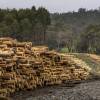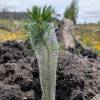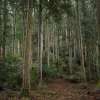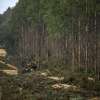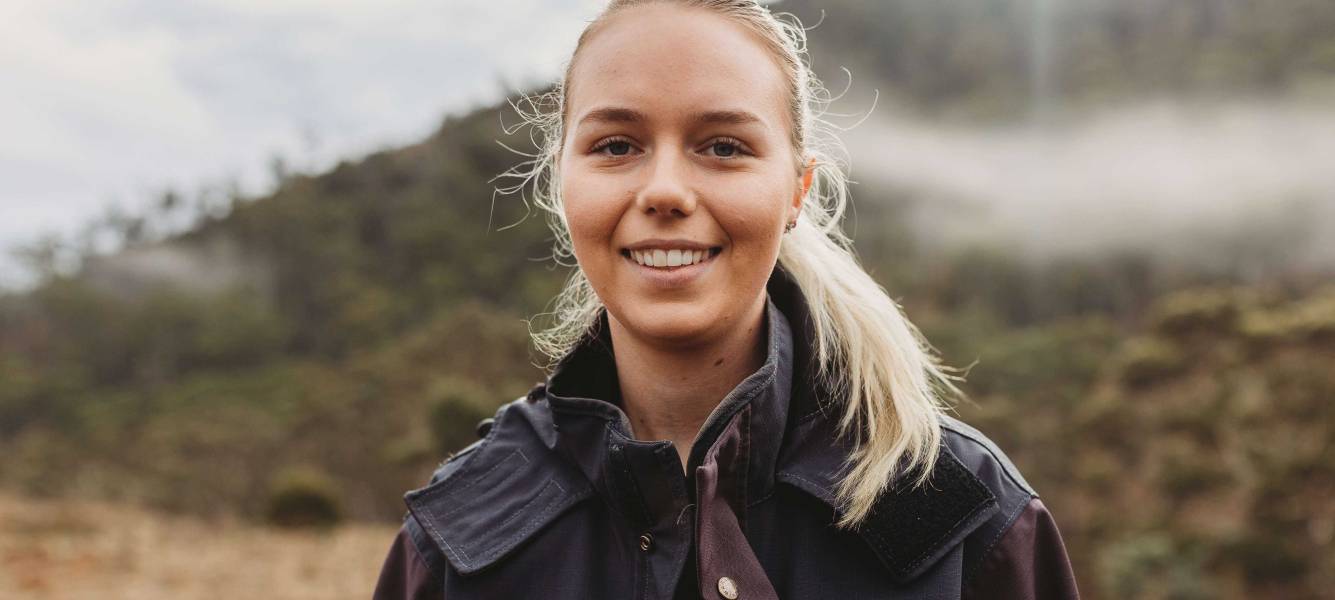
Australia-Japan Agroforestry information exchange
Posted 15 March 2023
Private Forests Tasmania's Agriforester, Molly Marshall, is joining a small group of Australian foresters and bushland managers visiting Japan to share forestry experiences and techniques with our counterparts.
Australian academic, Professor Michael Seigel, introduced Landcare to Japan in the mid 2000s, initially to groups of his North Asian students, many of whom he brought to Australia to look at our community and environmental organisations and programs as part of their studies of policy-making.
He knew Landcare well, having seen it operate in the 1990s in his home region, the New South Wales Riverina, where the whole community had banded together to reduce the impact of salinity on farming.
Michael, a Catholic priest holding the chair of social ethics at Nanzan University, Nagoya, made contact with Australian Landcare International (ALI) in 2009, which intensified the importance of Landcare as a feature of the student tours.
Other Japanese students came here to do research, as did community people wanting to learn how Australians manage volunteers, all with friendly help from ALI.
That led in October 2017 to the first international Landcare conference outside Australia, at Nagoya. This forum brought together academics and experienced practitioners, and led to ACIAR in 2022 publishing Building Global Sustainability through Local Self-reliance – lessons from Landcare.
Other initiatives emerged. Firstly, under Andrea Mason, a new, all-embracing organisation formed: Global Landcare (GL) combined ALI, the Secretariat for International Landcare (SILC), both based in Victoria, and a pre-Zoom Nairobi tele-meeting network called Landcare International.
Moreover, an idea emerged from the pre-conference tour, which had visited Shinshiro in Aichi Prefecture where the problems of rural Japan were aired: depopulation, disappearing knowledge and skills, complex land tenure laws and traditions, small-scale enterprises, pest plants and animals, and so on, and especially the need to get young people back into the countryside.
Sadly, Professor Seigel died a year after the conference.
However, Australian-style multi-disciplinary Landcare, with its strong emphasis on communication and empowerment, had always seemed to him a possible tool for provincial Japan. Moreover, in Australia, Landcare networks were being increasingly involved in disaster management and post-event restoration. Indeed, they were often part of the emergency contingency system. He thought this very relevant to Japanese life, given the tsunami twelve years ago and the frequency of earthquakes.
Furthermore, Japan had regional forestry co-operatives, one of which was based in Shinshiro. Some Australian community groups fill similar functions.
This led to the concept of a small group of Australian agroforesters and bushland managers visiting Japan to share experiences and techniques with their counterparts. Two obvious choices from our end were forester/author/lecturer Rowan Reid and his neighbour, grazier Andrew Stewart, who had together founded the Otway Agroforestry Network over 20 years ago. This initiative led to the Master TreeGrower program, which has trained hundreds of landowners in Australia and overseas in farm forestry skills, especially on-site high quality timber production following appropriate pruning and thinning regimes, at the same time sustaining grazing and cropping. Both men continually use their properties to demonstrate agroforestry.
Rob Youl, deputy chair of GL, a retired forester and Landcare worker with extensive Victorian bushland properties under Trust for Nature covenants, obtained a grant from the Australia-Japan Foundation for a four-person delegation to central Honshu incorporating visits to Shinshiro, Nara and Toyama regions. Rob did a reconnaissance at his own expense a few days before Covid hit the world in early 2020.
Moreover, as Covid flashed by, Rob realised that we needed to involve more young people in the exercise. Accordingly, three young women will also participate: Molly Marshall, Agriforester with Private Forestry Tasmania in Burnie, and chair of Forestry Australia in that state; and Jacinta Douglas and Sharlee Dunolly-Lee, Indigenous land managers from Bendigo. The latter, from Dja Dja Wurrung country, Central Victoria, bring the traditional environmental perspectives of Aboriginal people. Jacinta describes it as ‘the importance of being on and looking at and listening to Country with a custodial viewpoint’.
The group leaves Melbourne on Monday 20 March 2023 to join their Japanese Landcare colleague, Professor Kazuki Kagohashi. How will the trip unfold? The group will concentrate on central Honshu, travelling from Nagoya – Shinshiro – Nara – Toyama – Takayama – Nagoya.
The Australians expect to learn a great deal from our hosts, given the depth of Japanese culture and land management experience, especially in terms of forest and water resources.
On our part, we hope to show how farming activities can be blended with high-grade timber production, with concomitant landscape, biodiversity, fire protection and educational benefits and enhanced farm yields, with the bonus of greatly increased social cohesion by devolving responsibility to independent community-based Landcare networks. It is more or less universal in Australia that these networks are supported by all levels of the political-bureaucratic system and by technical advisors.
To accommodate the larger party and rises in fares and accommodation costs, extra funding has been made available by Ausmed, Australia’s major online nursing training and accreditation provider, and from private sources.
Article by Rob Youl

